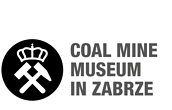Sites worth seeing in Silesia
History
The Upper Silesian Industrial District is not only the today coal and steel region, but also a very old mining centre of lead-ores with silver admixture, to be called in the former times the silver carrier ore and the mining of iron-ores which in the past centuries formed this land. Later on, came time for mining of zinc-ore and coal. The first documentary mention of the lead-ore mining has dated from 1136 and said about the dig miners of silver in the vicinity of Bytom, the later mining town, which inhabitants used silver cradles for their children, as other people told about them. From the XIII century the mining of lead-ore has already existed in the neighbourhood of Repty village (now the quarter of Tarnowskie Góry). However the later discovery of the new deposits of lead-ores with a rich admixture of silver near the Tarnowice village caused to form of mountains (gory) or mines, today called Tarnowskie Góry as the miners settlements. In the XVI century these above mentioned settlements received the town-rights. Only the later application of steam engines to be used in industry, and coke in iron metallurgy brought in the XIX century a dynamic coal mining development, which in that time began to dominate in the Upper Silesian industry, pushing down the other industrial branches at the background. The mining and metallurgy of zinc-lead ores existed in the neighbourhood of Tarnowskie Góry up to the interwar time, and in the Bytom - Piekary region to the eighties of XX century. A lot of labyrinths, galleries and underground chambers have remained after the zinc-lead ores mining. If you are disirous to see the beauty of these undergrounds, visit therefore, restored for tourists the underground tourist routes, they are.
The Black Trout Gallery - Tarnowskie Gory Has been accessed for visitors from 1957, is to be found on the south-west part of town in the large Repecki Park, situated near the Górnośląskie Centrum Rehabilitacji "Repty" ("Repty" Upper Silesian Rehabilitation Centre). We have to climb down on foot by winding stairs and next to go by boats through the sector of about 600 m long and nearly 25 m deep, next we continue the underground travel along the water-gallery hollowed out in 1821-1835, in darkness brightened only by a twinkling carbide lamp. It remains unforgettable impresions.
Virtual tour you can travel click this address
http://www.kopalniasrebra.pl/EN/kopalnia/wirtualna.htm
GUIDO mine in Zabrze
History of the GUIDO Mine
The Coal Mining Museum is the largest and most important tourist and cultural institution in Zabrze. From April 2nd 2013 the Museum is a single entity, established on the basis of merging the Historic Guido Coal Mine with the former Coal Mining Museum in Zabrze (with a seat located in the former county office at 3 Maja Street 19). The new institution comprises the Queen Louise Adit complex as well, which, along with the Guido Mine, will soon become one of the most interesting tourist attractions of Zabrze. The complex consists of the Queen Louise Mine and Main Key Hereditary Adit underground galleries.
The newly established Coal Mining Museum offers a wide range of tourist and museum offer, above all aimed at exploring the region's mining heritage. The visitors can enjoy here the deepest located tourist routes in a coal mine in Europe, offering many activities, relating to both the contemporary and historical mining.
The newly established Coal Mining Museum offers a wide range of tourist and museum offer, above all aimed at exploring the region's mining heritage. The visitors can enjoy here the deepest located tourist routes in a coal mine in Europe, offering many activities, relating to both the contemporary and historical mining.
 |
| Enjoy your travel |
 |
| Mine level 320 |
An Amazing view . tomorrow next famous landmarks











Wow! What an amazing place to visit!
ReplyDelete1740 metres, less 600 metres by boat, that is a manageable walk. Really interesting. I remember hearing that a steam train still runs in Poland, and people can pay to be a driver of the train for a trip, after some training.
ReplyDelete